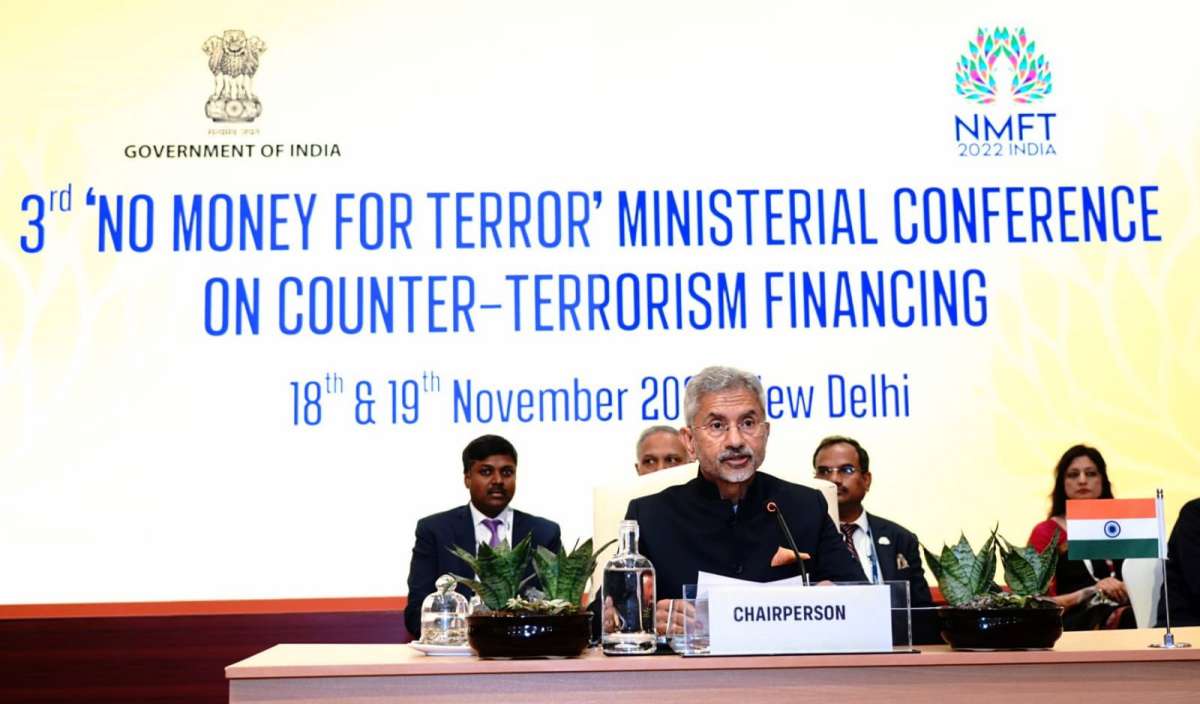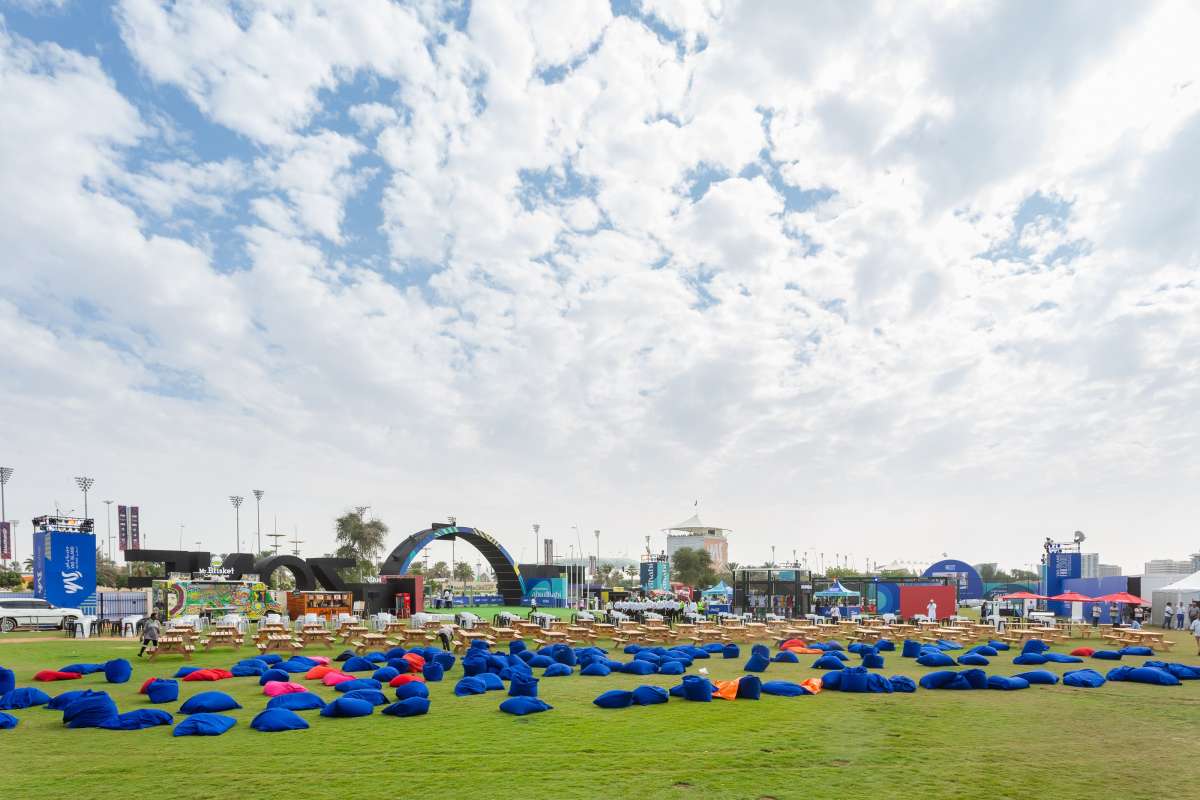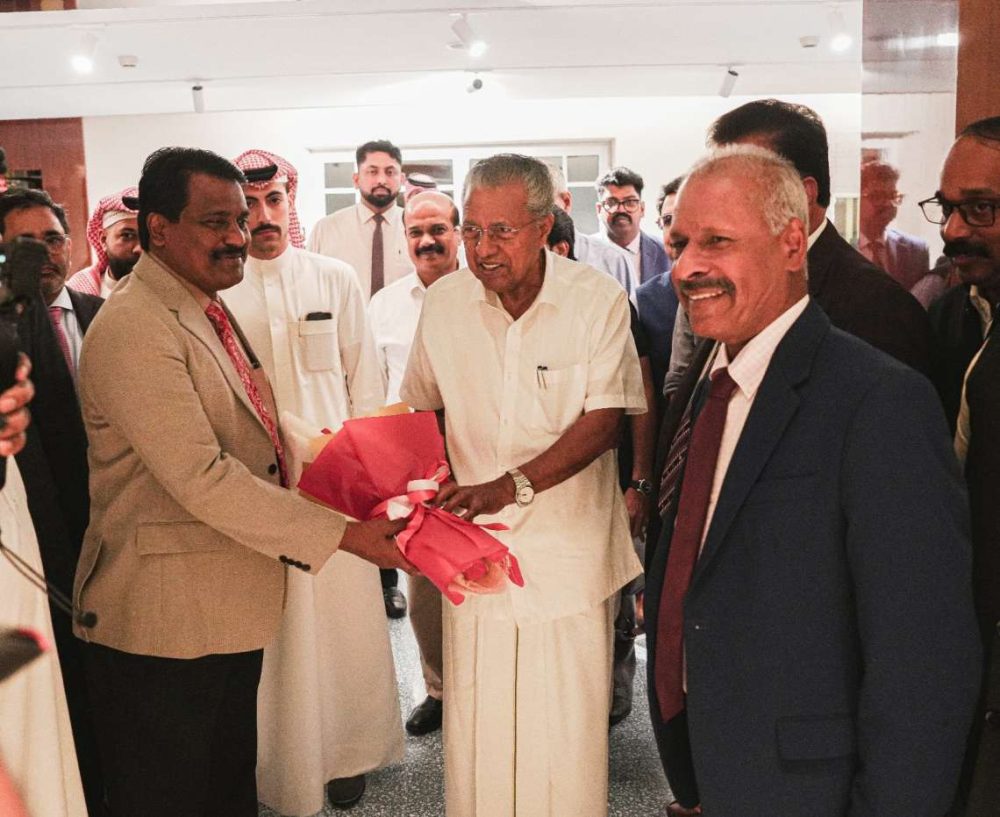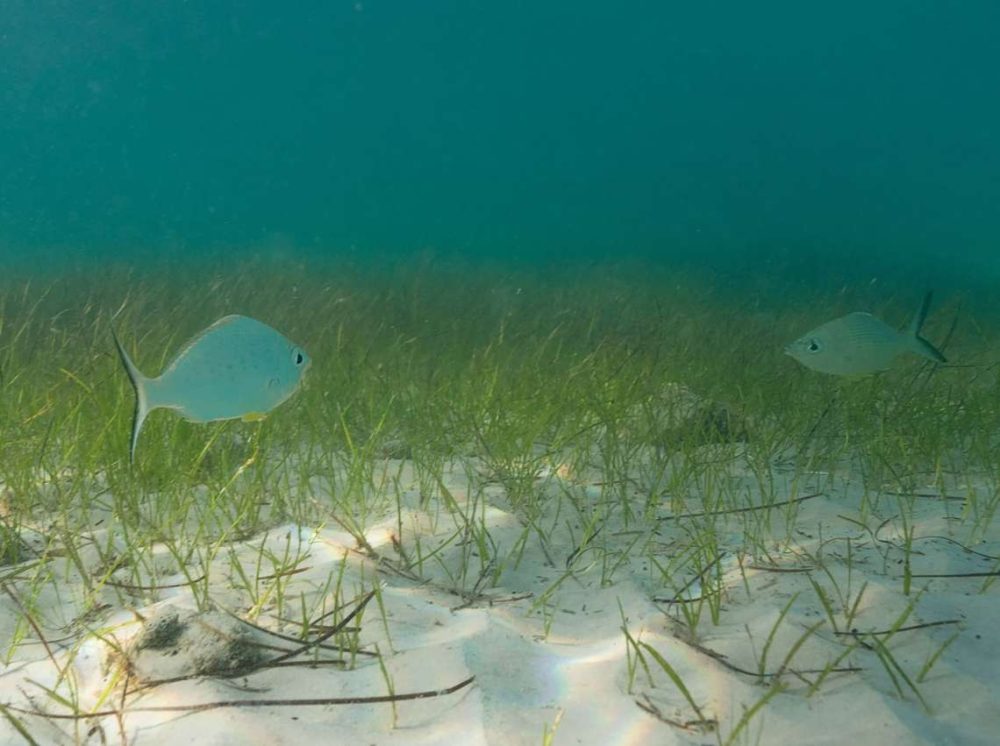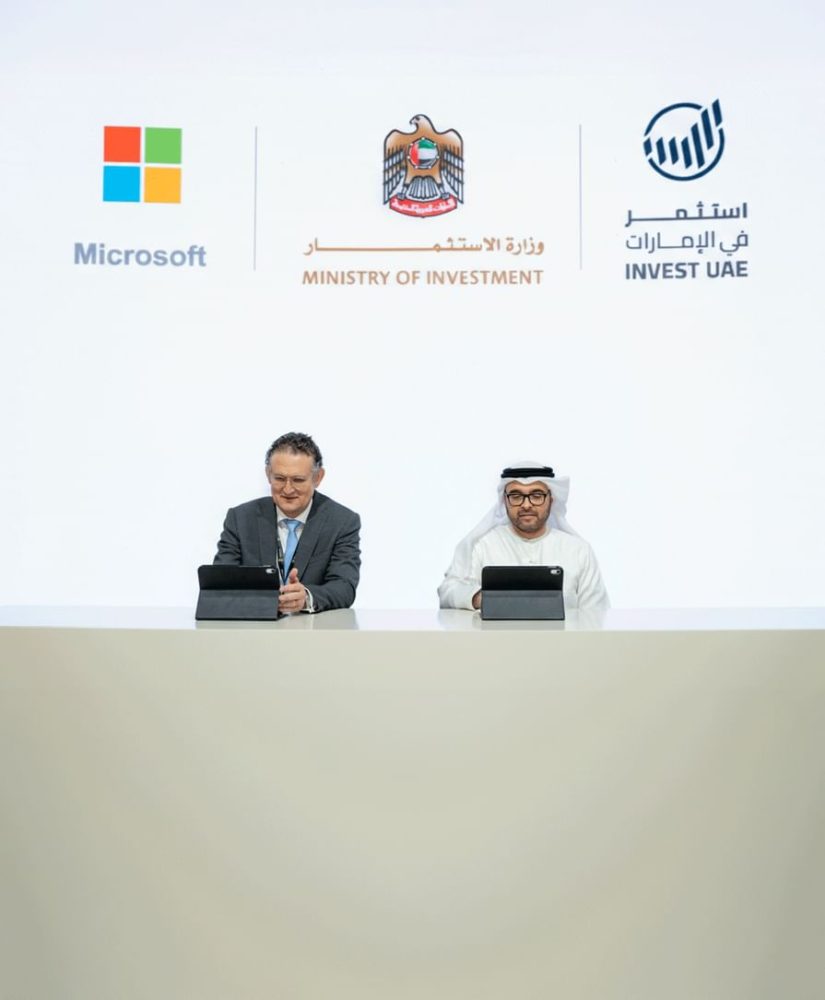External affairs minister S Jaishankar, without naming Pakistan or China, criticised countries that use terror as a ‘tool of state-craft’ or fail to ’rise above political divides’ to address the threat posed by terroris…reports Asian Lite News
External affairs minister S Jaishankar took a swipe at Pakistan and China over their position in combating terrorism and outlined practical steps to be taken by countries, including sharing of real-time information, to counter terrorists.
Addressing a session on promoting international cooperation against terror financing at the “No Money For Terror” ministerial conference hosted by India, Jaishankar – without naming Pakistan or China – criticised countries that use terror as a “tool of state-craft” or fail to “rise above political divides” to address the threat posed by terrorism.
India has for long accused Pakistan’s establishment of backing and sheltering terrorist groups such as Lashkar-e-Taiba (LeT) and Jaish-e-Mohammed (JeM) that have carried out cross-border attacks. China’s blocking of joint India-US efforts to sanction Pakistan-based terrorists at the UN Security Council has emerged as a fresh irritant in the already troubled relations between New Delhi and Beijing.
Jaishankar emphasised that perpetrators, facilitators and financiers of terror attacks “continue to walk free, enjoy state support and hospitality”, and the “most egregious example we all know pertains to the 2008 Mumbai terror attack”.
He said, “In India’s context, terrorist groups from across the border such as LeT, JeM or Harkat-ul-Mujahideen and their proxies thrive on assured financial support to commit barbaric acts of terror on Indian soil.”
The world community must collectively call them out the few states that “still aid, support and even justify terrorism and wilfully provide financial assistance and safe havens” to terrorists. “Concerted action against terrorists and their sponsors, including dismantlement of terrorist safe havens, sanctuaries, training grounds, and financial and ideological as well as political support structures are critical imperatives to defeat terrorism,” he said.
Jaishankar listed five reasons for the growing scope, scale and intensity of the terrorist threat in recent years, including the “continued tendency of some to use terrorism as a tool of state-craft and willingness of others to justify and obfuscate that”.
“Important that all states collectively follow an undifferentiated and undiluted approach to terrorism. Terror is terror and no political spin can ever justify it,” he tweeted. “World needs to rise above political divides to address this peril. The battle against terrorism must be fought resolutely on all fronts, in all situations and at all places.”
He added, “When it comes to terrorism, we will never look away, we will never compromise and we will never give up on our quest to ensure justice.”
Jaishankar said it was ironic that while terror attacks often involve cross-border support and elements, such as recruitment of fighters, procurement of weapons, and transfer of funds, the response by authorities stops at the geographic borders where their jurisdiction ends.
Among the other reasons listed by Jaishankar for the growing scale of the terrorist threat were advancements in technology that terrorists “access more readily than law enforcement and security systems”, resurgence of radical ideologies and their more seamless spread, along with motivational messages, inter-penetration and inter-dependence of globalisation that “opens up new vulnerabilities, including in financial transactions”, and greater competition among states that is exploited by terrorists, including the emergence of ungoverned and under-governed spaces.
Though Jaishankar did not cite any specific ungoverned spaces, concern has increased in India about the use of Afghanistan’s territory by groups such as the LeT, JeM and Islamic State-Khorasan Province since the Taliban takeover of Kabul last year.
He said a key challenge was that “while the bad guys think global and lateral, the good guys still think national and vertical”. In this context, it is essential to encourage a “whole of the government” approach at home and a “whole of the world’’ approach abroad, he pointed out.
Terror groups are also quickly adopting and misusing new financial technologies, such as blockchain technology, crypto-currency, and digital crowd-sourcing. Fake charities and non-profit organisations too are frequent sources of terror financing, he said.
Among the practical steps outlined by Jaishankar for ensuring collective against terrorists was sharing of real-time information, exchange of evidence and witness statements, and adopting effective procedures for bringing terrorists to justice through prosecution or extradition.
He also called for freezing of the financial assets of terror groups, preventing the movement of terrorists through territories of countries, preventing the supply of all types of arms and related material to them, and providing full cooperation to the states where or against whose citizens terrorist acts are committed.
India, with like-minded partners, will remain committed to highlight the existential threats that terrorism poses to global security and stability. “We will shine the spotlight on this peril – and all those involved in nurturing and furthering it,” he said.
India has focused on counter-terrorism as it comes to the end of a two-year stint at the UN Security Council. Besides hosting the No Money For Terror meeting, India also held a special meeting of the UN Counter-Terrorism Committee in New Delhi last month. Jaishankar said the No Money For Terror platform aims to broad-base the “big fight against terror financing”.
On December 15, under India’s presidency of the UN Security Council, the country will organise a briefing on “Threats to International Peace and Security caused by Terrorist Acts: Global Approach to Counter Terrorism – Challenges and Way Forward” in New York.
India is gearing up for its mutual evaluation under the Financial Action Task Force (FATF) and is focused on upgrading its financial intelligence network with new technology. Jaishankar said India will also continue its efforts during its presidency of G20 and SCO to build global cooperation on counter-terrorism.


